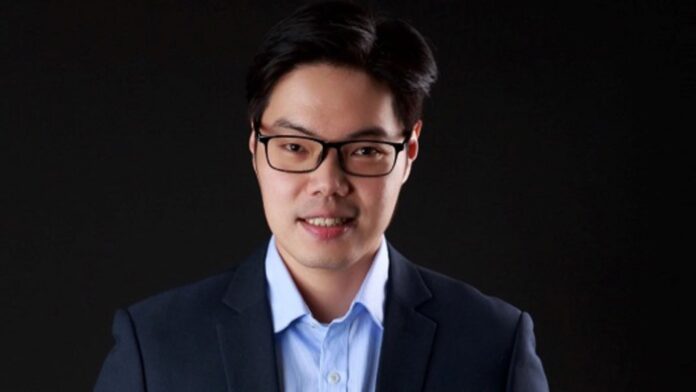dr Charles Lim, Global Head of Quantum Communications and Cryptography, JP Morgan Chase
Courtesy: JP Morgan Chase
JPMorgan Chase has hired a Singapore-based quantum computing expert as the bank’s global head of quantum communications and crypto, according to a memo obtained by CNBC.
Charles Lim, an assistant professor at the National University of Singapore, will focus on researching next-generation computing technology in secure communications, according to the memo by Marco Pistoia, who leads the bank’s global applied technology research group.
According to Pistoia, Lim is a “recognized global leader” in quantum-powered communications networks.
Hired by IBM in early 2020, Pistoia has built a team at JPMorgan focused on quantum computing and other emerging technologies. Unlike today’s computers, which store information as either zeros or ones, quantum computing depends on quantum physics. Rather than being binary, qubits can simultaneously be a combination of zero and one and any value in between.
‘New Horizons’
The futuristic technology, with hardware kept at super-cold temperatures and years away from commercial use, promises the ability to solve problems far beyond the reach of today’s traditional computers. Tech giants like Alphabet and IBM are scrambling to build a reliable quantum computer, and financial firms like JPMorgan and Visa are exploring potential uses for it.
“New horizons will become possible, things we didn’t think were possible before,” Pistoia said in a JPMorgan podcast interview.
In finance, machine learning algorithms are being improved to aid in fraud detection in transactions and other areas that involve “prohibitive complexity,” including portfolio optimization and options pricing, he said.
Drug development, battery material science and other fields are being transformed by dramatically advanced computing, he added.
But when advanced computer technology becomes a reality, the encryption techniques that support the world’s communications and financial networks could become immediately unusable. This has fueled the study of next-generation quantum-resistant communication networks, which is Lim’s area of expertise.
quantum supremacy
Prior to quantum supremacy, or the point where quantum computers are capable of performing calculations beyond the scope of traditional computers, new forms of cryptography and secure message exchange are required in a timely manner, Pistoia said during the podcast.
That could happen by the end of the decade, he said.
The quantum advantage precedes this development and could happen as early as two or three years, he said. At this point, the new computers are more powerful and more accurate than today’s versions, but they are competitive.
“Even now that quantum computers aren’t that powerful, we don’t have that much time left,” Pistoia said on the podcast. That’s because bad actors already retain private communications to try to decipher them later when technology allows, he said.
Lim will “do both basic and applied research in quantum information and focus on innovative digital solutions that improve the safety, efficiency and resilience of financial and banking services,” Pistoia said in the memo.
Lim is a recipient of the Singapore National Research Foundation grant and won the 2019 National Young Scientist Award for his work in quantum cryptography, Pistoia said.
Last year, Lim was asked to lead his country’s efforts to develop quantum-resistant digital solutions, and he has been involved in international efforts to standardize quantum security techniques, Pistoia added.















